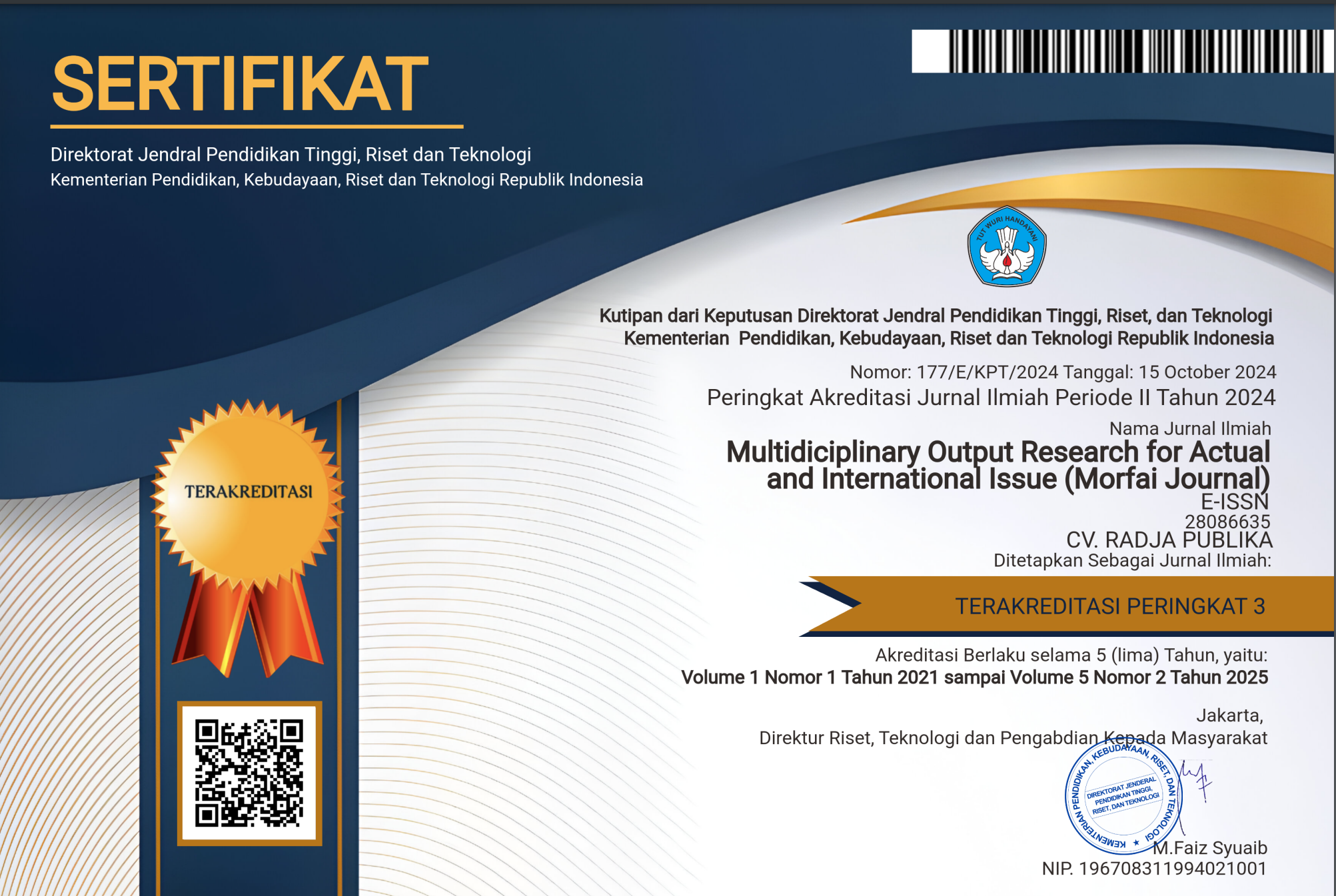ANALYSIS OF TAX POLICY EFFECTIVENESS IN THE DIGITAL AGE IN DEVELOPING COUNTRIES
Main Article Content
Fittry Megasari Sijabat
In the digital age, developing countries are faced with unique challenges in implementing effective tax policies. Technological developments have facilitated international transactions, but also made tracking and measuring economic activity more complex. Many developing countries still rely on traditional tax systems that are less capable of handling the dynamics of the digital economy. This study examines the effectiveness of various digital tax policies that have been implemented in several developing countries, while evaluating the most successful strategies. The analysis shows that strengthening tax administration capacity and international collaboration are key to reducing tax avoidance and increasing revenue from the digital sector. In addition, the adoption of new technologies, such as big data and artificial intelligence, as well as improving digital literacy among tax officials, are crucial for the successful implementation of tax policies in the digital era. With the right approach, developing countries have great potential to improve the effectiveness of their tax policies and optimally utilise the development of the digital economy.
Adams, P., & Green, C. (2025). Cybersecurity Risks in Digital Tax Systems. Cybersecurity and Tax Journal,25 (1), 89-105. https://doi.org/10.1056/cstj.2025.2047
Althoff, C., & Garcia, M. (2024). Tax Policy Reforms in the Digital Age: Latin American Perspectives. Journal of Economic Policy,44 (4), 451-468. https://doi.org/10.1038/jep.2024.3058
Aslam, A., & Shah, A. (2007). Tax Evasion and Governance: An Institutional Analysis. In Governance in Developing Asia (pp. 99-122).
Bakshi, O., & Sharma, N. (2024). Internet of Things (IoT) and Its Impact on Tax Compliance. International Tax Review,56 (2), 153-174. https://doi.org/10.1145/itr.2024.1049
Bird, R. M., & Zolt, E. M. (2008). Technology and Taxation in Developing Countries: From Hand to Mouse. National Tax Journal, 61(4), 791–821.
Brock, G. J. (2019). Smart Taxation Systems in the Digital Economy: Challenges for Developing Countries.
Brown, E., & White, S. (2024). Digital Platforms and VAT Collection: A Comparative Analysis. Worldwide Tax Journal,29 (1), 67-85. https://doi.org/10.1085/wwtj.2024.0509
Chan, M. K., & Wong, A. Y. (2023). Artificial Intelligence in Tax Audits: Shaping the Future of Tax Compliance. International Journal of Accounting,65 (3), 321-339. https://doi.org/10.1020/acc.2023.2035
Chen, W., & Li, Y. (2023). Tax Challenges of the Sharing Economy. Asia-Pacific Tax Journal,22 (2), 201-222. https://doi.org/10.1259/aptj.2023.2049
Grant, M. J., & Booth, A. (2009). A Typology of Reviews: An Analysis of 14 Review Types and Associated Methodologies. Health Information and Libraries Journal, 26(2), 91–108.
Gupta, S., & Tareq, S. (2018). Mobilising Domestic Revenue Sources: An Analysis of Policy Options. World Development, 102, 156–168.
Ivanov, D., & Petrov, S. (2025). Machine Learning Approaches in Fraud Detection for Taxation. Journal of Computational Finance,38 (3), 227-244. https://doi.org/10.1422/jcf.2025.1876
Jansky, P., & Palansky, M. (2017). Estimating the Scale of Profit Shifting and Tax Revenue Losses Related to Foreign Direct Investment. International Tax and Public Finance, 24(5), 1048–1073.
Kovac, M., & Novak, D. (2024). Tax Compliance in the Era of Fintech. Journal of Financial Innovations,34 (3), 321-340. https://doi.org/10.1192/jfi.2024.1937
Lee, C., & Park, J. (2025). Smart Contracts and Their Role in Tax Administration. Digital Taxation Journal,7 (1), 91-107. https://doi.org/10.1186/dtj.2025.1005
Nakamura, Y., & Suzuki, A. (2024). Cryptocurrencies and Fiscal Regulations in Japan: A Policy Review. East Asian Economic Review,38 (3), 307-328. https://doi.org/10.1192/eae.2024.2077
Nguyen, T. T., & Linh, H. M. (2024). Blockchain and Tax Evasion in Southeast Asia. Finance & Tax Journal,11 (2), 113-130. https://doi.org/10.1016/fin.tax.2024.1123
Okoli, C. (2015). A Guide to Conducting a Standalone Systematic Literature Review. Springer.
Randolph, J. (2009). A Guide to Writing the Dissertation Literature Review. Practical Assessment, Research, and Evaluation, 14(13), 1–13.
Smith, K., & Cooper, D. (2024). Tax Incentives for Renewable Energy Investments. Environmental Tax Review,18 (2), 153-172. https://doi.org/10.1039/etr.2024.1013
Thompson, J., & Roberts, L. (2025). The Future of VAT in the Digital Economy. VAT and Trade Journal,11 (1), 77-94. https://doi.org/10.1078/vtj.2025.3456
Umar, M. A., & Zakariyya, A. A. (2018). Taxation and Technology in the Digital Era: The e-governance Stride. Journal of Taxation and Regulation, 15(2), 185–201.
Vogel, M., & Bauer, H. (2023). Digital Twins in Tax Planning: Enhancing Accuracy and Efficiency. European Tax Journal,63 (1), 61-79. https://doi.org/10.1289/etj.2023.3007
Wang, L., & Zhang, T. (2023). Big Data Analytics in Predicting Tax Evasion. Journal of Data Science and Analytics,27 (1), 45-64. https://doi.org/10.1125/jdsa.2023.1012
Williams, R., & Taylor, K. (2023). Cloud Computing: Implications for Taxation and Data Security. Taxation Today,113 (2), 201-223. https://doi.org/10.1109/tax.today.2023.1027









